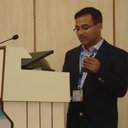Adjuvant effect of Asparagus racemosus Willd. derived saponins in antibody production, allergic response and pro-inflammatory cytokine modulation.
Mots clés
Abstrait
The study manifests the immunoadjuvant potential of saponin rich fraction from Asparagus racemosus in terms of cellular and humoral immune response that can be exploited against microbial infections. Asparagus racemosus (AR) has been attributed as an adaptogen and rasayana in traditional medication systems for enhancing the host defence mechanism. Spectrophotometric and HPTLC analysis ensured the presence of saponins. The saponin rich fractions were tested for immunoadjuvant property in ovalbumin immunised mice for the humoral response, quantified in terms of prolonged antibody production upto a duration of 56days. Proinflammatory cytokines (IL-6 and TNF) were estimated for the cellular immune response in LPS stimulated primary murine macrophages. The safety evaluation in terms of cytotoxicity and allergic response has also been evaluated through in-vitro (MTT) and in-vivo (IgE) respectively. ARS significantly inhibited the pro-inflammatory cytokines, in LPS stimulated murine macrophages with no intrinsic cytotoxicity. The significant increase in IgG production infers the utility of ARS for prolonged humoral response. Further, the antigen specific response of IL-12 at early stage and IgE titres also suggests the generation of cellular immune response and low allergic reaction respectively, as compared to conventional adjuvants. IL-6 and TNF fluctuations in LPS stimulated and non-stimulated macrophages along with IgG and IL-12 also confirmed the Th1/Th2 modulating effect of ARS. The study indicates potential effect of ARS as an adjuvant for the stimulation of cellular immune response in addition to generating a sustained adaptive response without any adverse effects paving way for further validation with pathogenic organisms.



